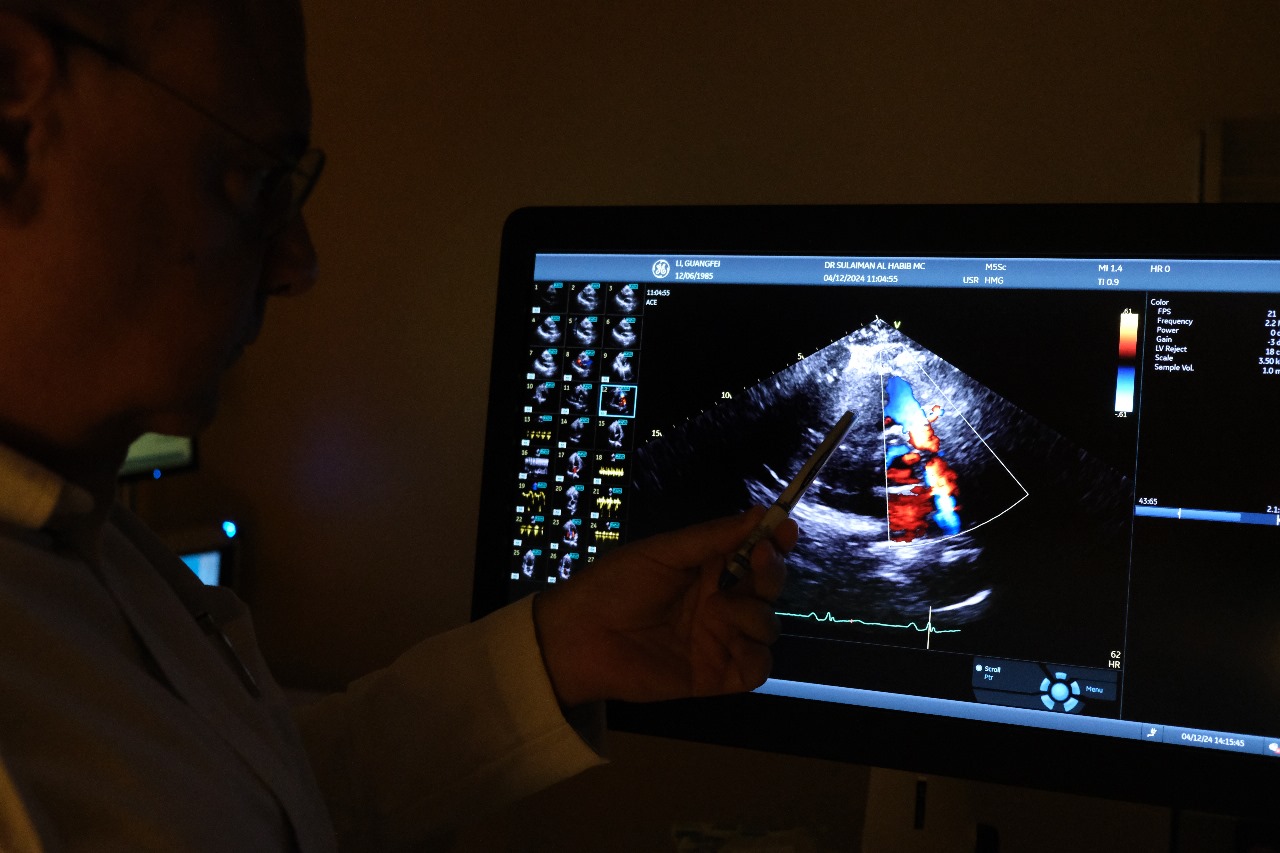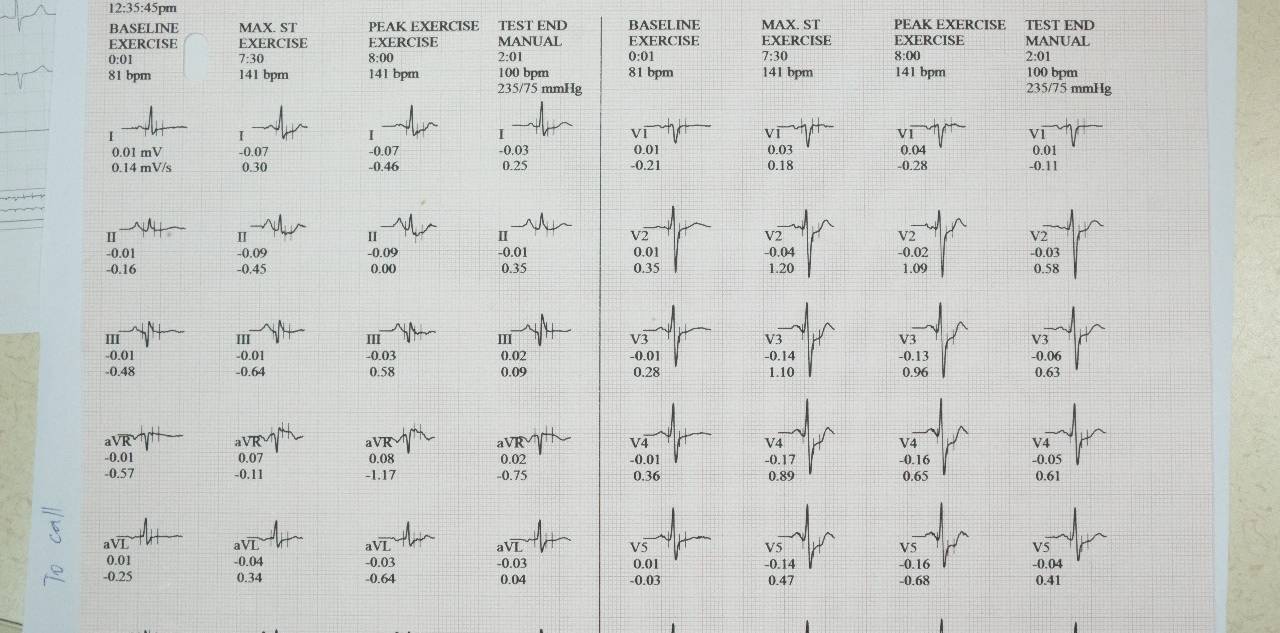
Diagnostic Testing in Cardiovascular Care
Accurate diagnostic testing is a fundamental component of effective cardiovascular care, providing essential insights into heart health and enabling precise diagnosis and treatment planning. At Dr. Turquieh’s practice, we utilize state-of-the-art diagnostic tools and techniques to ensure comprehensive evaluations that complement clinical expertise. Below is an overview of the key diagnostic tests we offer:
Electrocardiogram (ECG/EKG)
The Electrocardiogram (ECG or EKG) is a foundational test in cardiology, measuring the electrical activity of the heart. This quick, painless procedure is used to detect heart rhythm abnormalities, heart attacks, and other cardiac conditions. Electrodes are placed on the patient’s chest, arms, and legs to capture the heart’s electrical signals, which are displayed as waveforms on a monitor. Despite its simplicity, the ECG remains a necessary starting point in cardiac diagnosis, although it may be limited in identifying some conditions.
Echocardiography
Echocardiography, or “Echo,” is a non-invasive test that uses ultrasound waves to create detailed images of the heart. It provides critical information about the heart’s structure and function, helping diagnose valve diseases, heart muscle problems, and congenital heart defects. The test allows Dr. Turquieh to assess the heart’s size, shape, movement, and the functioning of its chambers and valves, making it an invaluable tool in initial cardiac evaluations.
Stress Testing
Stress testing evaluates the heart’s performance under physical exertion, primarily used to detect coronary artery disease (CAD). During the test, patients exercise on a treadmill while their heart rate, blood pressure, and ECG are monitored. For those unable to exercise, a pharmacological stress test simulates exercise effects using medication. Stress testing helps stratify patients by risk, guiding the need for further testing and intervention.
Holter Monitoring
Holter monitoring involves continuous recording of the heart’s electrical activity over 24 hours or longer using a portable device worn by the patient. This test is particularly useful for detecting arrhythmias, palpitations, and syncope. By correlating recorded heart activity with patient-reported symptoms, Holter monitoring provides a detailed picture of irregular heart rhythms in everyday life.
Blood Pressure Monitoring
Ambulatory blood pressure monitoring measures blood pressure over 24 hours, capturing daytime and nighttime readings. This method is crucial for diagnosing hypertension, assessing treatment effectiveness, and identifying “white coat hypertension,” where blood pressure is elevated in a clinical setting but normal at home.
Cardiac CT Angiography
Cardiac CT angiography uses X-rays to produce detailed images of the heart and its blood vessels. It helps identify blockages, aneurysms, and other vascular conditions, often following inconclusive or suboptimal stress test results. This non-invasive imaging provides valuable insights into coronary artery health.
Nuclear Cardiology
Nuclear cardiology involves using small amounts of radioactive material to assess heart function and blood flow. Tests like Stress Thallium and myocardial perfusion imaging detect areas of poor blood flow and identify damaged heart muscle, making them particularly effective for diagnosing CAD and evaluating the viability of heart muscle.
Cardiac MRI
Cardiac Magnetic Resonance Imaging (MRI) offers advanced imaging of the heart’s structures using powerful magnets and radio waves. It’s essential for diagnosing complex conditions like infiltrative diseases (e.g., amyloidosis), hypertrophic cardiomyopathy, myocarditis, and congenital heart defects. Cardiac MRI provides detailed insights when other diagnostic methods fall short.
Blood Tests
Blood tests are invaluable in evaluating heart health, measuring cholesterol, inflammation markers, and kidney function. Tests such as troponin indicate heart muscle damage, while C-reactive protein (CRP) highlights inflammation linked to heart disease. These tests aid in diagnosing and managing cardiovascular conditions effectively.
Comprehensive and Patient-Centered Care
At Dr. Turquieh’s practice, diagnostic testing is conducted with precision and care in a state-of-the-art facility equipped with the latest technology. Dr. Turquieh and his team prioritize creating a comfortable and reassuring environment for patients, ensuring each diagnostic test is performed accurately and efficiently.

